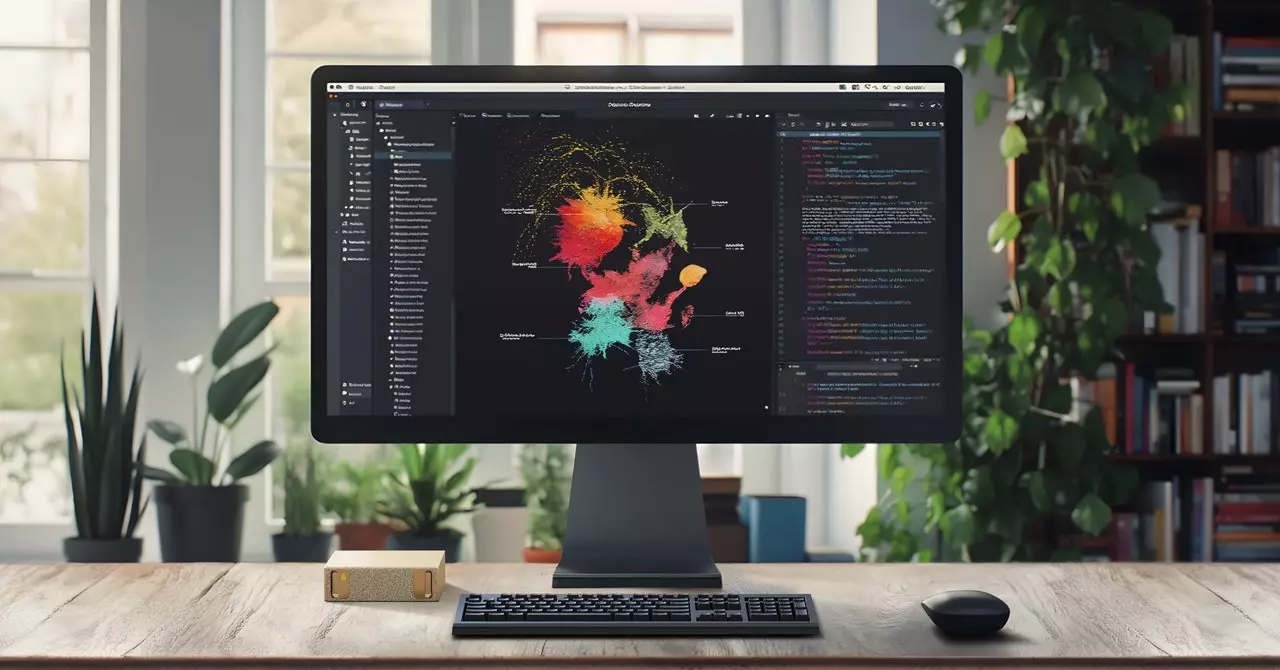Artificial Intelligence (AI) technology has transcended its initial stage of evolution, prompting both excitement and skepticism across various sectors. As AI becomes a cornerstone in industries from healthcare to finance, the demand for advanced computing power has surged. Nvidia, a venerated name in the tech world, recognizes this shift and is poised to innovative solutions for AI enthusiasts and professionals alike. At the recent CES event, Nvidia unveiled its latest offering—the Digits personal AI supercomputer—which is aimed at democratizing AI development by making powerful computing accessible to a mainstream audience.
Nvidia’s decision to launch the Digits comes amid a rising tide of interest in open-source AI and personalized technology. As many organizations and individuals seek the freedom to innovate and experiment with AI tools, the introduction of a compact, affordable supercomputer is monumental. Priced at $3,000, the Digits machine could lay the foundation for an empowered generation of AI researchers, data scientists, and passionate hobbyists. CEO Jensen Huang encapsulated the essence of this endeavor, emphasizing that placing such technology within reach of the common user fosters a significant leap in AI engagement and creativity.
At the heart of the Digits supercomputer is Nvidia’s groundbreaking GB10 Grace Blackwell superchip. Designed specifically for high-performance AI tasks, this chip streamlines the complex computations essential for both training and executing sophisticated AI models. Coupled with an impressive 128 gigabytes of unified memory and a whopping 4 terabytes of NVMe storage, the machine presents itself as an appropriately robust platform for demanding applications. Importantly, the Digits can effectively run expansive language models that consist of up to 200 billion parameters, giving users a taste of high-caliber AI development without the astronomical costs or logistical challenges associated with leasing cloud services.
Nvidia has also integrated a feature that allows for the interconnection of two Digits units through a proprietary high-speed link. This capability facilitates the running of intricate models, such as Meta’s Llama, which has over 405 billion parameters. Such versatility means that Digits can bridge the gap between abstract theoretical knowledge of AI and practical, hands-on experimentation, creating a new domain of possibility for AI enthusiasts.
Although Digits epitomizes a significant step toward individual empowerment in AI, one cannot overlook the distinctions when placed alongside the giants in the industry. Models such as OpenAI’s GPT-4 and Google’s Gemini still dominate the landscape, residing in expansive data centers where they can exploit massive computing resources. Thus, while the Digits machine opens doors for various users, it underscores the reality that access to the most sophisticated iterations of proprietary models still relies on substantial infrastructure.
Nvidia’s momentum within the AI realm underscores a broader industry trend characterized by an escalating race for advanced hardware. The company has adeptly capitalized on the AI revival, evidenced by the soaring stock prices that reflect corporate investments in cutting-edge technology. The Digits machine stands as the flagbearer of Nvidia’s commitment to cultivate an environment where AI is not just for the corporate elite but for every inquisitive mind ready to explore its limits.
The unveiling of the Digits personal AI supercomputer signals a transformative shift in how individuals and smaller organizations can engage with AI technology. As AI adoption proliferates, Nvidia’s move to make expansive computing capabilities available at a consumer price reflects a profound understanding of emerging trends within the tech landscape. While challenges remain in bridging the gap between independent research and enterprise-level deployment, the Digits supercomputer paves the way toward a future where AI is not merely a tool for the few, but an accessible frontier for all. As innovation progresses, it will be fascinating to see how this development influences the democratization of AI and what opportunities will arise for the countless individuals inspired to contribute to the ongoing narrative of technology.


Leave a Reply